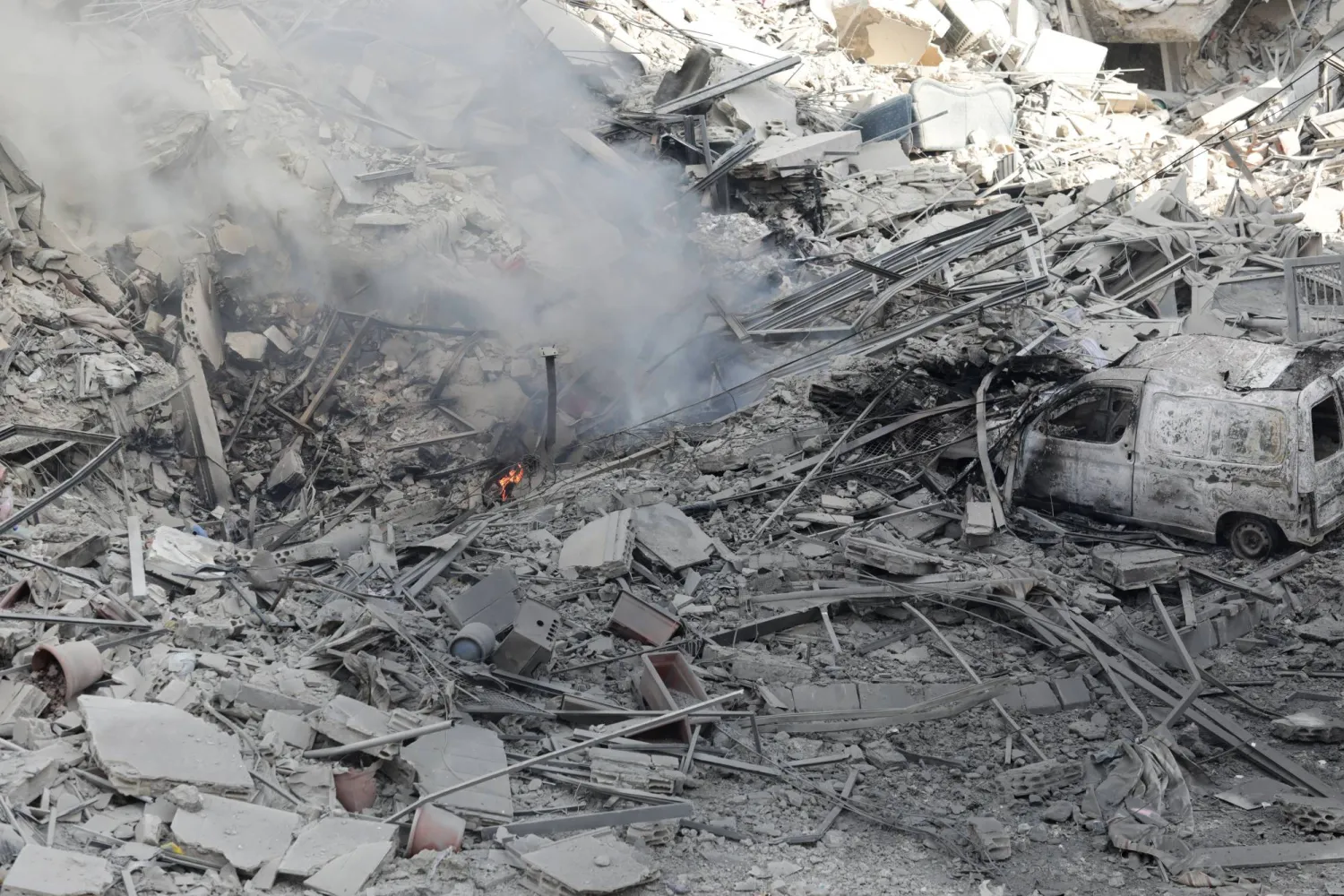US President Joe Biden on Saturday called Israel's killing of Hezbollah leader Hassan Nasrallah "a measure of justice" for his many victims, and said Washington fully supported Israel's right to defend itself against Iran-supported groups.
In a statement released by the White House, Biden said he had directed Defense Secretary Lloyd Austin to further enhance the defense posture of US military forces in the Middle East to deter aggression and reduce the risk of a broader war.
Ultimately, Biden said, the US aimed to de-escalate ongoing conflicts in Gaza and Lebanon through diplomatic means.
Israel on Thursday rejected global calls for a ceasefire with the Iran-backed Hezbollah movement, defying Washington and pressing ahead with strikes that have killed hundreds in Lebanon and heightened fears of an all-out regional war.
“It’s time for a ceasefire,” Biden said, when asked by reporters in Rehoboth Beach, Delaware on Saturday if an Israeli ground incursion into Lebanon was inevitable.
In the White House statement, Biden underscored his full-throated support for Israel's strike on Nasrallah, which occurred while Israel's Prime Minister Benjamin Netanyahu was in New York for the United Nations General Assembly and Biden and others were trying to broker a ceasefire deal.
"Hassan Nasrallah and the terrorist group he led, Hezbollah, were responsible for killing hundreds of Americans over a four-decade reign of terror. His death from an Israeli airstrike is a measure of justice for his many victims, including thousands of Americans, Israelis, and Lebanese civilians," Biden said.
He noted that Nasrallah had also supported Hamas the day after its attack on southern Israel on Oct. 7, 2023, when Hamas gunmen killed some 1,200 people and abducted about 250 hostages, according to Israeli tallies.
Since then, Israel's military has leveled swaths of Gaza, driving nearly all of its 2.3 million people from their homes, giving rise to deadly hunger and disease and killing more than 41,000 people, according to Palestinian health authorities.
Biden administration officials have pushed unsuccessfully for months to end the Gaza war, and more recently, to halt the fighting between Israel and Hezbollah, which flared after hand-held radios and pagers used by Hezbollah detonated, killing dozens and injuring nearly 3,000.
"The United States fully supports Israel's right to defend itself against Hezbollah, Hamas, the Houthis, and any other Iranian-supported terrorist groups," Biden said in the statement, issued as he spent the weekend at his vacation home.
"It is time for these deals to close, for the threats to Israel to be removed, and for the broader Middle East region to gain greater stability," he said.
Biden spoke briefly with reporters after convening a call with Vice President Kamala Harris and other top national security for an update on the situation in the Middle East and to review the status of US military in the region.
He said the US was seeking diplomatic solutions to end the conflicts, but stopped short of criticizing Israel's actions.
"It is time for these deals to close, for the threats to Israel to be removed, and for the broader Middle East region to gain greater stability," he said.
Biden also told reporters the US was responding to missile attacks on US warships in the Red Sea by Yemen's Iran-aligned Houthis, but gave no details.
RISK OF BROADER WAR
The escalation has increased fears the conflict could spin out of control, potentially drawing in Iran, Hezbollah's principal backer, as well as the US.
Biden told reporters on Friday, before Hezbollah confirmed Nasrallah's death, that the US had no knowledge of or participation in the Israeli military action that killed the militant leader.
Over 600 people have been killed in Lebanon since Monday.
Biden did not address the civilian deaths or comments from Iranian officials saying Nasrallah's death would be avenged.
The president's failure to condemn Israel's killing of hundreds of civilians in Lebanon could drive a further wedge between Democrats and the Arab American and Muslim communities, said Abbas Alawieh, co-founder of the Uncommitted National Movement that mobilized over 750,000 voters to protest Biden's handling of the Gaza war during the Democratic primaries.
Harris, who became the Democratic nominee after Biden stepped aside, is running neck-and-neck with former President Donald Trump and the election could be decided in a handful of states with large Arab American or Muslim communities.
"President Biden and Vice President Harris aren’t just ignoring Arab, Muslim, and anti-war voters in Michigan — they’re pushing them away," Alawieh said. "Every hour, I get messages from my family in Lebanon, asking when the American-funded bombs will stop."
Harris, in California for two campaign fundraisers, echoed Biden's support for Nasrallah's killing in a separate statement and reiterated her "unwavering" commitment to Israel's security.
"President Biden and I do not want to see conflict in the Middle East escalate into a broader regional war," the Democratic presidential candidate said. "Diplomacy remains the best path forward to protect civilians and achieve lasting stability in the region."









